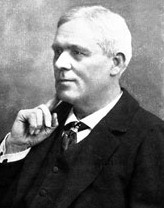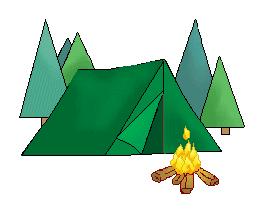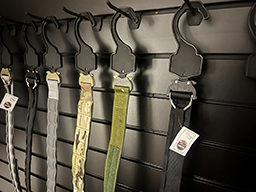The History of Camping
Camping as a recreational activity entered into popular society over 100 years ago, before then it was an activity only carried out by the military. It is widely accepted that Thomas Hiram Holding was one of the first proponents of the activity, which is gaining in popularity every year and will continue to do so, through the effects of the current economic climate. Through his literature,  Thomas Holding not only popularised camping for leisure, he also, designed the first truly portable tent, and founded what has now become the camping and caravan club.
Thomas Holding not only popularised camping for leisure, he also, designed the first truly portable tent, and founded what has now become the camping and caravan club.
Holding wrote the first Camper's Handbook in 1908, but it was not until the end of the First World War that camping as a pass time really started to take off. This book described to people, for the first time, the basics of camping. The knowledge required to write this book he learnt whilst traveling with a wagon train across the prairies of America. The journey, taken with his family in 1853 at the age of 9, was 1200 miles long, we can only marvel at the experiences he must have had.
During the 1920’s and 30’s saw the rise and promotion of a healthy lifestyle. The book “Healthy Living” by Charles- Edward Amory Winslow for instance promoted a good healthy diet with regular outdoor exercise. This helped greatly popularise camping.
Camping continued to rise in the 1950’s with tent holidays seen as a less regimental alternative to boarding houses and allowing poorer families to experience a holiday for the first time.
During the 1960s there was a seismic change in the way people went on holiday in the UK. People started to notice the benefits of camping rather than staying in a boarding house which had always been more popular before. Some of the reasons for this were that camping was far cheaper, the price and quality of camping goods was improving and whilst camping you didn't have to adhere to the stricter rules of boarding houses.
Festival camping started  to grow in popularity around this period also. Camping has allowed people to stay within close proximity to the actual proceedings of the festivals. Most festivals now offer simple camping facilities.
to grow in popularity around this period also. Camping has allowed people to stay within close proximity to the actual proceedings of the festivals. Most festivals now offer simple camping facilities.
Small seaside campsites that were easily accessible via train quickly turned into large Warner, Pontin and Butlins holiday camps with their own military style barracks for accommodation. Blackpool with its excellent railway network became Britain’s most popular holiday destination with a height of 17 million visitors a year.
These holiday camps saw the popularity of the tent and the caravan dwindle slightly until the increased wealth of the 1960’s and 70’s and cheap mass production meant that car ownership became more widespread. Camping holidays in parts of the country which would have earlier been too inaccessible for the majority of the population saw a vast rise in holiday makers. The South West of England became most popular camping destination and small independent campsites sprung up all over the region.
During this time period trailer tents also rose in popularity and people started heading over the channel to experience their first holiday abroad.
The 1980’s – 000’s saw a decline in camping in the UK with the introduction of cheap flights and package holidays. The number of people holidaying abroad rose from 7 million in 1978 to a height of 26 million by 1996. The number of people returning to camping increased slowly in the 2000’s but it was not until 2007 that camping really took off again.
Present day
As people turned to camping for a more economical holiday, at the same time to attract the rising number of holiday makers, campsites in the UK started to go more up market. Shower blocks became modernised and traditional farm campsites opened cafes selling traditional home grown and home cooked food. Entertainment also went more upmarket, assault co urses and bush craft skills are now on offer at many campsites and at a campsite in Sussex you can even attend a candlelit opera evening in the woods.
urses and bush craft skills are now on offer at many campsites and at a campsite in Sussex you can even attend a candlelit opera evening in the woods.
Glamping is a portmanteau (a word that is a combination of two or more words) and blends glamorous and camping. It's origins lye in the early 21st century when international financial troubles created demand for a high value luxury holiday style. From these troubled times the concept of a Glamping Holiday was born.
Glamping is a form of camping involving accommodation and facilities more luxurious than those associated with traditional camping. Glamping is a growing global phenomenon that combines camping with the luxury and amenities of a hotel. Accommodation at glamping sites include structures such as bell tents, yurts, tipis, pods, safari tents, tent cabins, vintage caravans, shepherd's huts and tree houses. The experience offers amenities such as fresh bed linens, tea service, food service, private dining and most importantly direct access to the great outdoors.
Over the past 100 years the concept of camping has evolved from an activity for military only to a popular holiday choice where currently over 1.2 million people who use camping as their main holiday within the UK and this is set to grow in my opinion.











